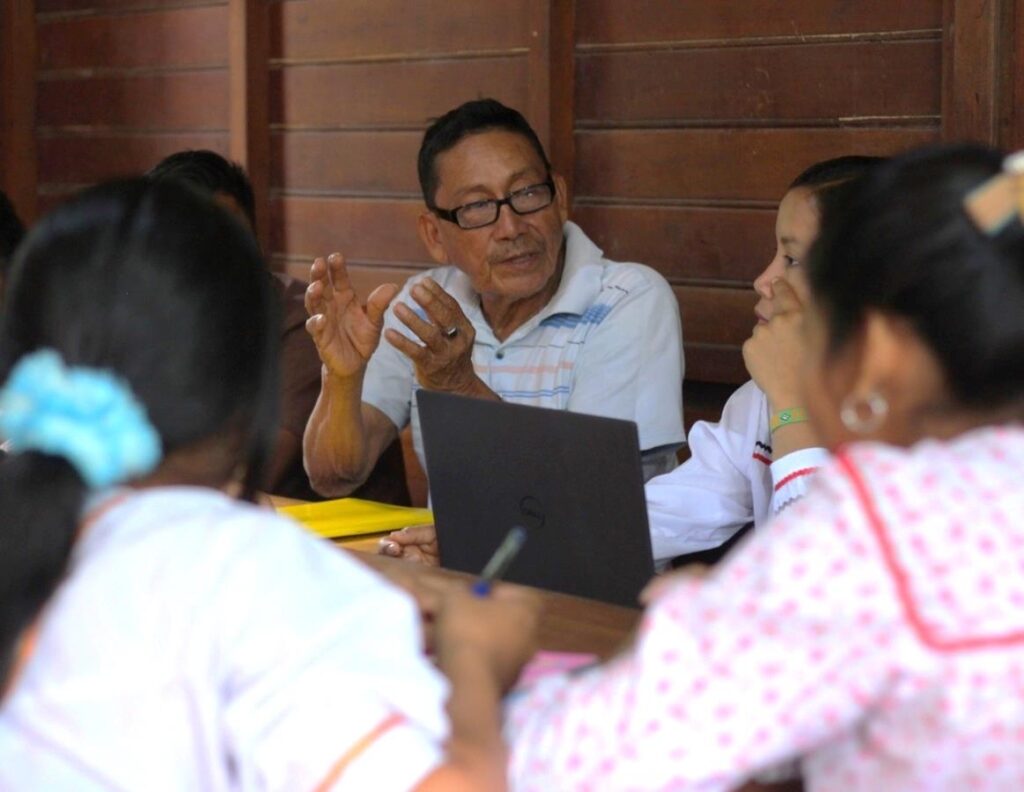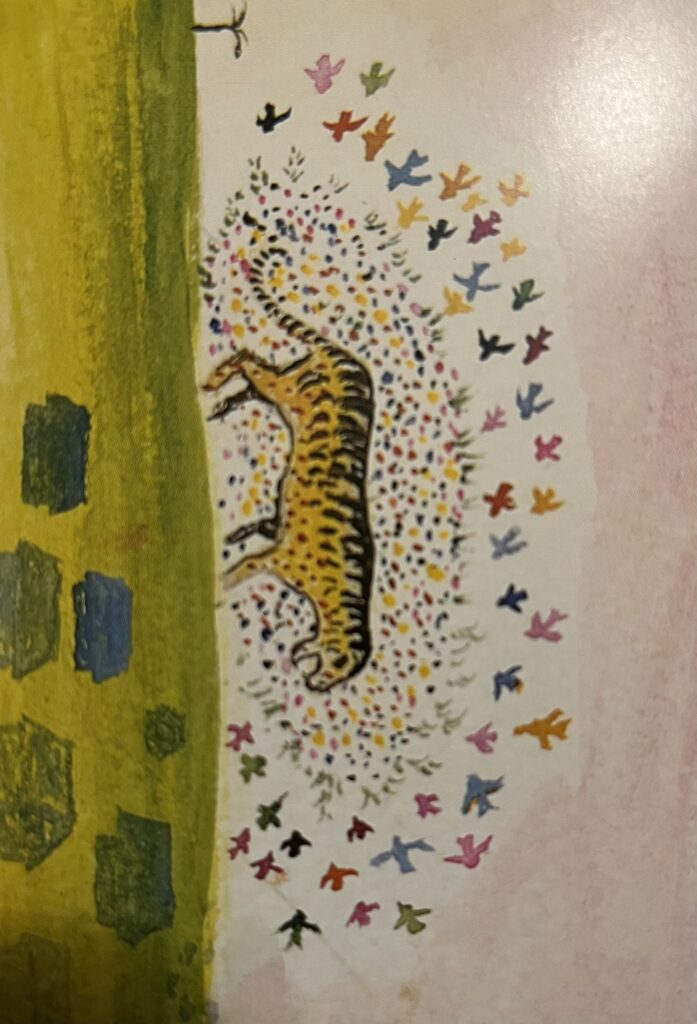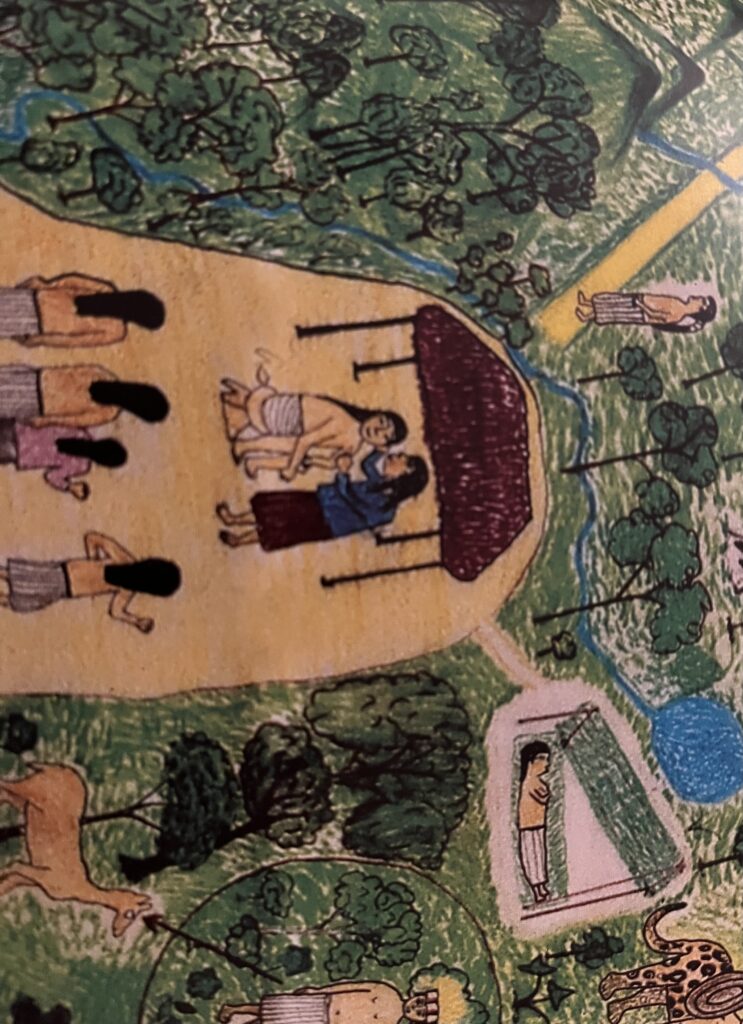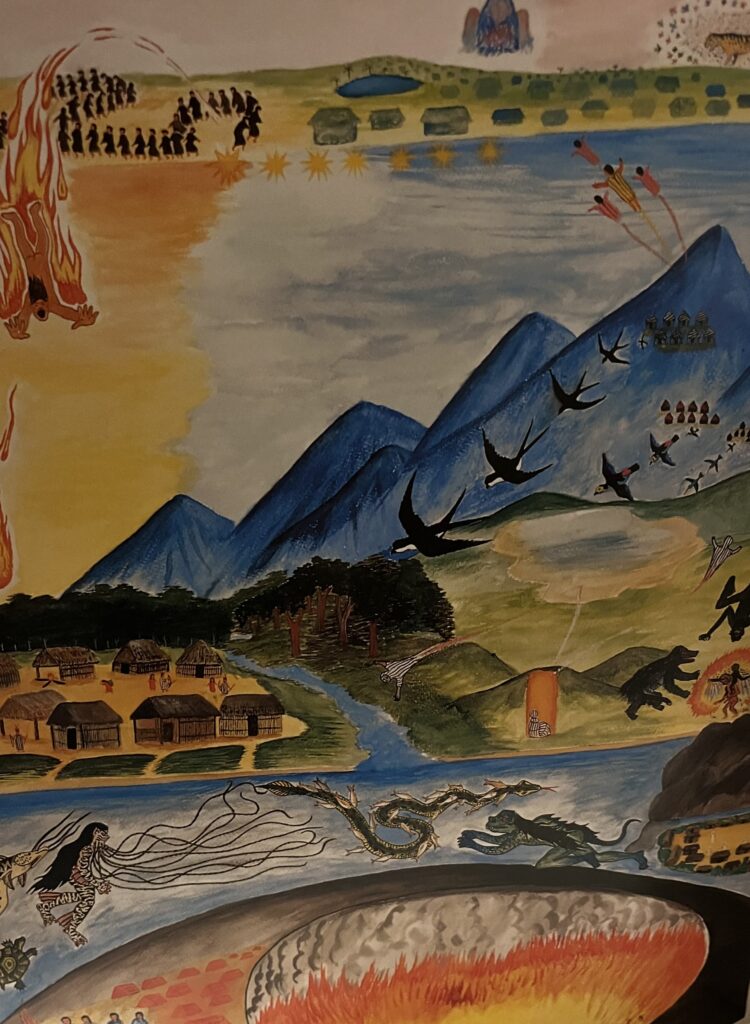
In all projects in Latin America that deal with the education of and for indigenous people, the local sabios are very important actors.
“Sabios” can best be translated as local wise men/women. They possess a special knowledge of Indigenous life and culture, their history, traditions, myths and creation stories, but to a great extent, also knowledge of the close coexistence of Indigenous people with nature. Sabios are also great communicators of this knowledge.
A sabio is a highly respected person in the local community. The title of sabio cannot be sought or inherited. It is a title given to a person who is considered by the community to have special knowledge about the origins and culture of their people.
In the past, the special knowledge of the Sabio was not used outside of the local communities, read e.g., by educational authorities. On the contrary, their knowledge was often ridiculed as useless and outdated. However, respect for the knowledge of local sabios has increased as more and more countries in Latin America have implemented major educational reforms with a focus on bilingual intercultural education. In the past, indigenous peoples and their cultures were completely absent, and indigenous people have demanded that knowledge of their history and cultures be included in new education programs.
Balancing old knowledge and new times
In the education project in Peru, the local wise men/women are part of the project’s background group on an equal footing with other local actors, such as representatives of local education authorities and local indigenous leaders. They are thus involved in discussing the content of the project as well as the ongoing development and implementation.
The local sabios contribute to developing curricula and teaching materials for teachers and students. They undertake part of the in-service training of teachers, as well as contributing to the productive projects that focus on sustainable interaction with the rainforest; they can disseminate knowledge about how the Indigenous people have lived in balance with nature for generations without overexploiting it and without using pesticides.
The special knowledge of the local sabios is generally passed on orally, as it is not written down in books. However, as written language has developed in the indigenous languages, more and more knowledge is being written down.
However, a big challenge for the local sages and women is to communicate the knowledge so that it is also relevant to the new generations.
In the final evaluation of the education project in Bolivia, the young people in the school homes criticized the local sabios. Among other things, they felt that the local sabios focused too much on how life was lived in previous generations and too little understanding of the special challenges facing Indigenous youth today. In addition, several of the young people found that the local sabios had very traditional attitudes towards gender roles.
The lessons learned in Bolivia are highly relevant and will be considered in the education project in Peru. There is no doubt that the knowledge the local sabios possess is important. But for young people to find this knowledge relevant, the local sabios must also have an insight into the lives of young people and the challenges they face in a rapidly changing world.
Young people cannot live the lives of their ancestors, but hopefully the local sabios’ sharing of the lives of previous generations can be the starting point for the development of new sustainable communities with young people as the driving force.
Photos from a textbook on indigenous culture and history, including creation stories.






